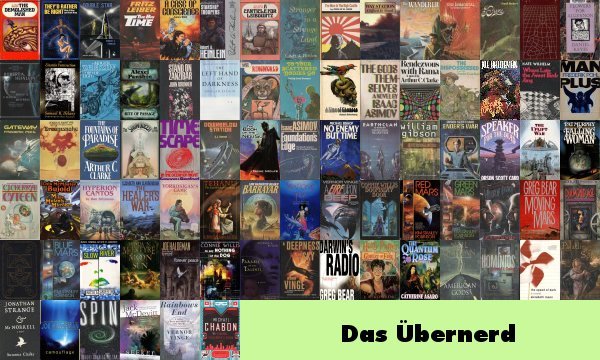 Batman: The Long Halloween
Batman: The Long HalloweenWritten by Jeph Loeb; Art by Tim Sale
1998 Eisner Winner for Best Limited Series
1999 Eisner Winner for Best Graphic Album: Reprint
I know that I usually talk about the story first and the art second with these things but I'm in a charitable mood tonight so I'm going to start by saying that Tim Sale does a bang up job with Batman: The Long Halloween. He showcases some wonderful character designs, has some nifty page layouts, and generally produces some very nice to look at art. This is good for this book since his partner in the endeavor fails to produce something worthwhile. Jeph Loeb's story is a disaster; a brain dead lifeless lump that's only interesting when he forgets about his overarching plot.
At the start of his career as a vigilante the Batman is pressing the mobs of Gotham City hard. To finish them off he forms an alliance with newly appointed police commissioner Gordon and district attorney Dent. Complicating their work is a serial killer who is murdering on holidays. They spend a year hunting for this killer and working their way through the new breed of strange criminals who are taking the place of the old families.
The opening of this story is a rip-off of the opening of The Godfather. I don't drop the term "rip-off" lightly and I definitely do not mean "homage". An "homage" would be opening at the wedding of the daughter of a powerful crime boss or perhaps using a line of two of dialog. Loeb lifts chunks of the script whole and transplants them into his story. This sets the tone for Loeb's plotting which often involves taking from better writers than himself and putting Batman into it. This is not a formula for a decent story; the reader is getting carbon copies a bit more fuzzy and you might as well go to the original.
I suppose it could have been worse since the parts that are not taken from other works are the some of the worst parts of The Long Halloween. Toward the end Loeb decides to pile on plot twists in a way that makes the story pointlessly convoluted. I'm trying to avoid spoilers here but if you take all the information given to you as a reader toward the end of the book and try to fit it in with the information you had before then you're only going to get a headache.
There's also a real problem with the pacing of the series. Each issue of the series is tied to a holiday. While this is an intriguing format it means that characters will talk about doing something immediately and then it takes them over a month to actually get around to it. Events that should take only a few days are played out over months because that's the pacing of the issues.
The one good part of The Long Halloween, as I stated, is Tim Sale's artwork. His character designs for this story are terrific and distinctive; this is not a situation where every character is the same body with different clothes and hair. He draws a large cast and manages to make them all appear unique while only using the extreme shapes for the freakish supervillains. And his page layouts for action sequences look terrific. I genuinely wish that I could have seen this quality of artwork tied to a readable story.
So the only reason to check out Batman: The Long Halloween is for the Tim Sale artwork. Loeb's story suffers from the his taking from other, better source and never finding a compelling story of his own to work with. His mystery falls flat in the end making the reading the book feel like time that has been wasted.





